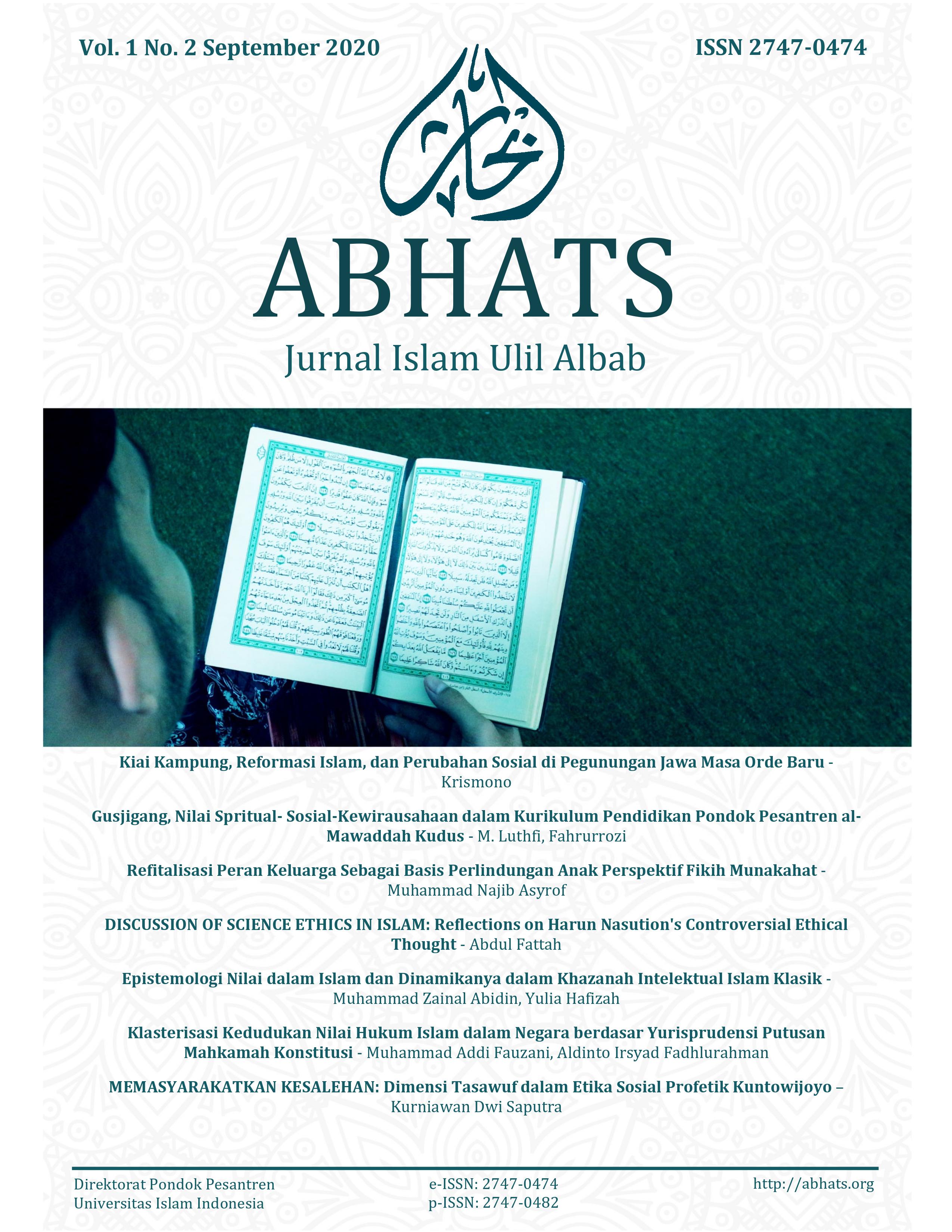Main Article Content
Abstract
This article intends to examine the concept of scientific ethics in Islam
with a focus on the thoughts of Harun Nasution.Harun Nasution is a controversial Islamic reformer. His idea was born as a response to
and against the traditional ideas that developed at that time, even
Harun Nasution dared to go against the flow of traditional thought
ethics that had long been rusty and difficult to remove. The emphasis
of this paper is on the presentation of Harun Nasution's progressive
thinking in various main issues in the study of Islamic ethical thought,
such as the idea of progress, coexistence between the Absolute-
Textual (qath'i) and relative-contextual (zhanni) regions as a
foundation the development of science in Islam, rational and
traditional categorization, inclusive attitudes: accepting culture or
knowledge from outside, freedom and development mentality: freedom
of thought and action, cosmology: belief in causality as a source of
success, moral problems and Harun Nasution's criticism of
materialistic / hedonistic culture. This paper is presented considering
that in a dynamic society, scientific ethics and community education
play a role in determining the existence and development of society.
Likewise with the role of scientific and educational ethics which is one
form of manifestation of the ideals of Islamic life to preserve, transfer
and instill (internalization) and transform Islamic values to the
personal of the next generation, so that cultural-religious values are
aspirated in society over time.
